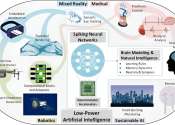The word concept is used in ordinary language as well as in almost all academic disciplines. Particularly in philosophy, psychology and cognitive sciences the term is much used and much discussed. WordNet defines concept: "conception, construct (an abstract or general idea inferred or derived from specific instances)". However, the meaning of the term concept is much disputed. Philosopher Edouard Machery (2011), for example, argues that theories of concepts in philosophy and in psychology have distinct goals and therefore do not share the same understanding of the term concept. He writes (p. 247):
A concept is typically associated with a corresponding representation in a language or symbology; however, some concepts do not have a linguistic representation, which can make them more difficult to understand depending on a person's native language, such as a single meaning of a term.
There are prevailing theories in contemporary philosophy which attempt to explain the nature of concepts. The representational theory of mind proposes that concepts are mental representations, while the semantic theory of concepts (originating with Frege's distinction between concept and object) holds that they are abstract objects. Ideas are taken to be concepts, although abstract concepts do not necessarily appear to the mind as images, while some ideas appear to. Many philosophers consider concepts to be a fundamental ontological category of being.
The term "concept" is traced back to 1554–60 (Latin conceptum - "something conceived"),[citation needed] but what is today termed "the classical theory of concepts" is the theory of Aristotle on the definition of terms.[citation needed] The meaning of "concept" is explored in mainstream information science, cognitive science, metaphysics, and philosophy of mind. In computer and information science contexts, especially, the term 'concept' is often used in unclear or inconsistent ways.









